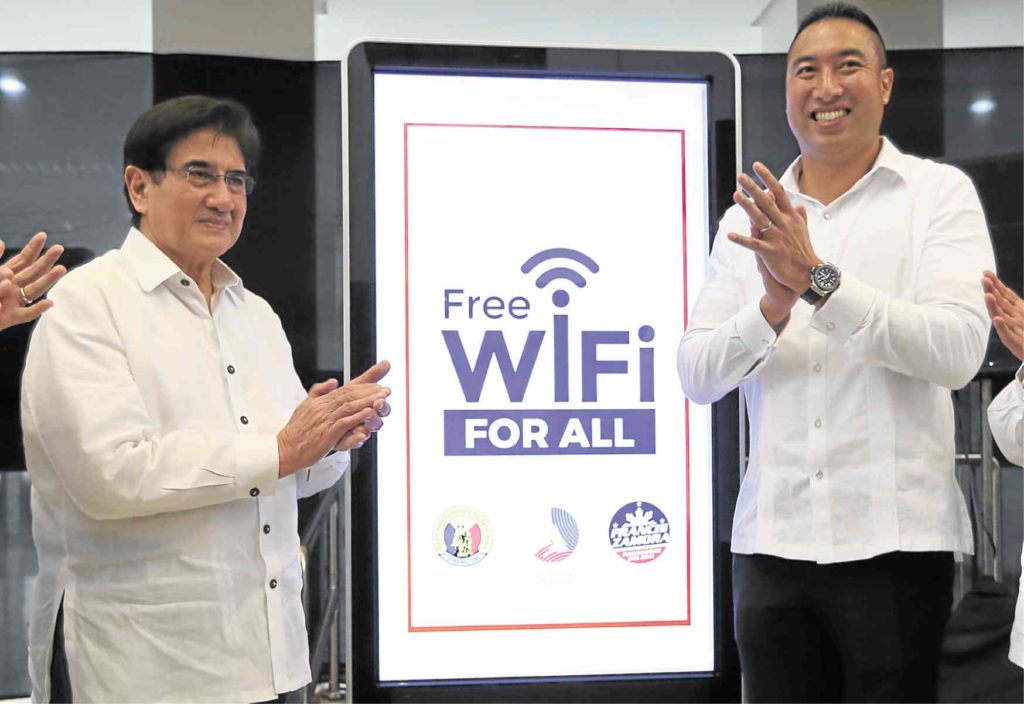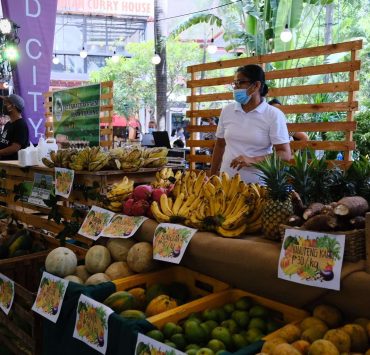Department of Information and Technology (DICT) Secretary Gringo Honasan III confirmed on Friday, July 17, that they have allocated P7.7 billion in its 2021 proposed budget for the country’s “digital transformation.”
“The call for digital transformation has never been more urgent. We need all the resources to fast track the country’s digital transformation for us to better adapt to the new normal brought by the COVID-19 pandemic,” said Honasan in a statement.
https://www.facebook.com/DICTgovph/photos/a.367838493311283/3119493158145789/?__cft__[0]=AZVFydwsUbAlHbOQoDLTcT4GatkSd0s3X6gsXk1aUGsNdGgzegZ9-5W7tmbf3FAONklM0XU3ki6o0hQueAdmh0JgPGnE-qKvfjPVmz6JLRJvxdIoJIq3c6TqI5lUmdZCFFNCIrJ6JMCIOoGxWvgAgYmU3NMjXPsBd9hwaNdM_F7WYA&__tn__=%2CO%2CP-R
The DICT plans to implement free wi-fi programs in public spaces, state universities and colleges (SUCs) and Technical Education and Skills Development Authority (TESDA) schools across the country.
According to the secretary, the goal is to establish at least 23,100 live sites by 2021—10,300 in public schools, 5,644 in national and local government offices, 3,300 in public hospitals and rural health centers, 1,804 in SUCs and TESDA schools, 1,505 in public parks, plazas and other open areas, 368 in public libraries and 179 in transport terminals.
“This is part of our commitment to DepEd, CHED and TESDA to ensure the education sector’s access to broadcast, connectivity and digital security this upcoming school year while the country is still under state of public health emergency,” he added.
There are 4,248 live sites operating as of June 30, 400 of which are in public hospitals and rural health centers.
Blended learning ‘will work’
The country is ready to open schools on Aug. 24 under a blended learning system, said Briones during the “Tatak ng Pagbabago 2020: The Pre-SONA Forum” on Wednesday, July 15. “We’ve seen it in our simulation, it will work,” said Briones.
In a blended learning setup, televisions, radios and the internet are main modes of education. So what happens to those who have no access to any of these platforms?
[READ: Face-to-face classes in COVID-19 low-risk areas? DepEd and DOH are thinking about it]
According to Briones, schools in low-risk areas may resort to face-to-face classes. “We do not insist that our learners, teachers use online learning because there are other alternatives. There are many ways to learn without going online.”
“Limiting 10 students to a classroom is aligned with physical distancing as part of the engineering controls. The one entrance, one exit is also good,” said Department of Health (DOH) secretary Francisco Duque III to back up DepEd’s statement.
Header photo from Inquirer.net
Get more stories like this by subscribing to our weekly newsletter here.
Read more:
After a dismal enrollment turnout, a youth group calls for an academic freeze
Face-to-face classes in COVID-19 low-risk areas? DepEd and DOH are thinking about it
Writer: KLEO CATIENZA




